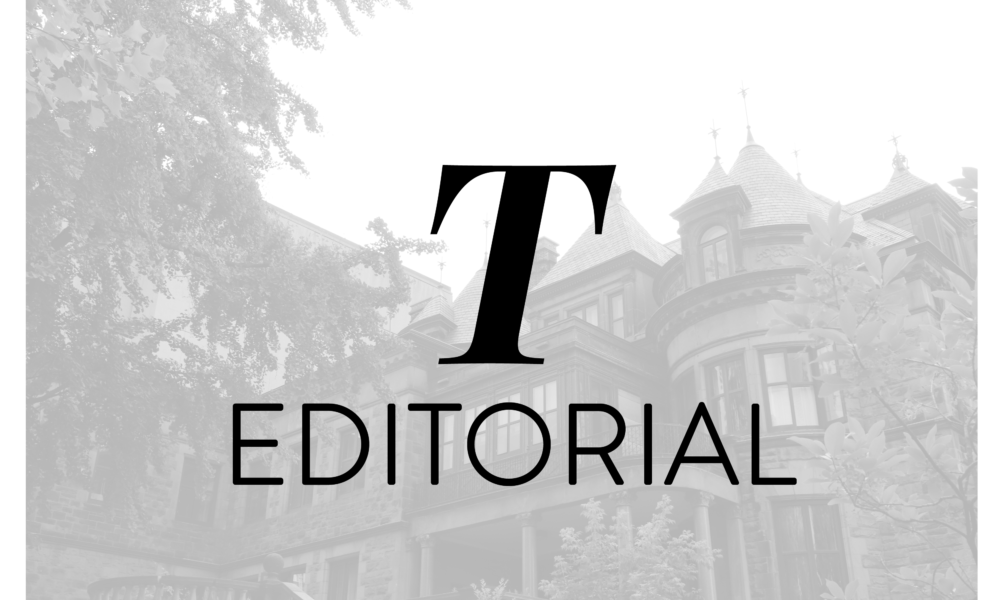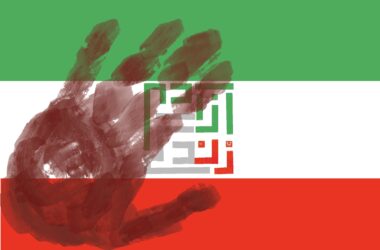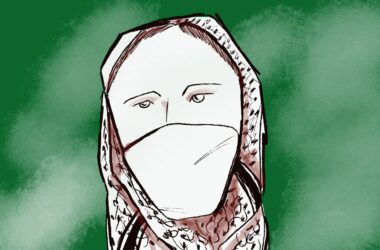Historically, police units have been known to target unhoused, queer, transgender, disabled, mentally ill, lower-income, Indigenous, Black, and other marginalized communities. Unhoused individuals sleeping on a park bench in Montreal can get fined up to $1000 CAD. Atif Siddiqi, who is transgender, alleged that the police laughed at them when they attempted to report their assault and robbery. Most recently, the Superior Court of Québec confirmed that racial profiling is a systemic issue within the city’s police force, establishing that Service de Police de la Ville de Montréal (SPVM) uses discriminatory and racist policing tactics.
Taking all of this into account, McGill continues to make the deliberate choice of calling SPVM on campus for student and staff demonstrations. Beginning in November 2023, President Deep Saini called police on pro-Palestine demonstrators. SPVM officers were onsite again on Feb. 22 during the Bronfman Building blockade. Months later, on June 6, the university called the SPVM on students occupying the James Administration Building, with the police making at least 15 arrests after pepper spraying and forcefully pushing students away from the building.
Unwarranted police presence goes beyond the university’s perceived threat from pro-Palestine students. In March 2024, McGill called the police on the Association of Graduate Students Employed at McGill (AGSEM) picketers, with the justification that it was illegal to intimidate others or disrupt operations and academic activities on campus. To add, the Tribunal Court ruled that the university was in obstruction of the Labour Code in reference to their interactions with the Association of McGill Professors of Law. Even dating back to 2011, Montreal riot police brutalized McGill students who were protesting against tuition hikes. It seems as though the university suppresses opposition of any kind. It is clear that McGill uses security as an intimidation tactic, actively discouraging students and staff from exercising their essential rights to protest and assemble.
Throughout this, students have repeatedly condemned McGill for its police reliance. The consensus within the student body is clear: More police on campus does not make people feel safer—it does the contrary. By enlisting what is known to be a violent institution upon its students at any point of dissonance with the administration, McGill signals threatening rhetoric that dissenters are dangerous, compounding fear and tension on campus.
The administration’s willingness to rely on police as a first resort to manage campus activism and discord sets a dangerous precedent, as the criminalization of young people perpetuates a cycle of violence that disproportionately targets racialized students and community members. McGill is sending a consequential message that student movements and protests should be suppressed rather than engaged with, undermining the university’s supposed commitment to fostering critical thought and positive change. By normalizing obedience and silencing dissent, McGill risks stifling the next generation of passionate activists and thinkers.
More importantly, McGill needs to get cops off campus because it normalizes discrimination and vigilant policing of BIPOC students. The more that over-policing is normalized on campus, the more that students will internalize the notion that protesting is an inherently aggressive act that warrants police presence. Students are afraid to participate in movements in which they fear their university will target them—especially brown, Arab, and Palestinian students in the Pro-Palestine protests. As long as the McGill administration endorses and commissions SPVM’s racist policing, students are not safe.
As a prominent public university, McGill’s primary obligation to its students is to provide a safe and conducive learning environment, meaning that all students deserve to feel protected on campus. How can racialized students feel secure in an environment where a police force that is proven to engage in racist practices is welcomed, rather than denounced? It is abhorrent that the university would ever jeopardize student safety to promote their own interests. It appears as though safety is a privilege reserved only for some at McGill—the administration itself and those who do not challenge it.









